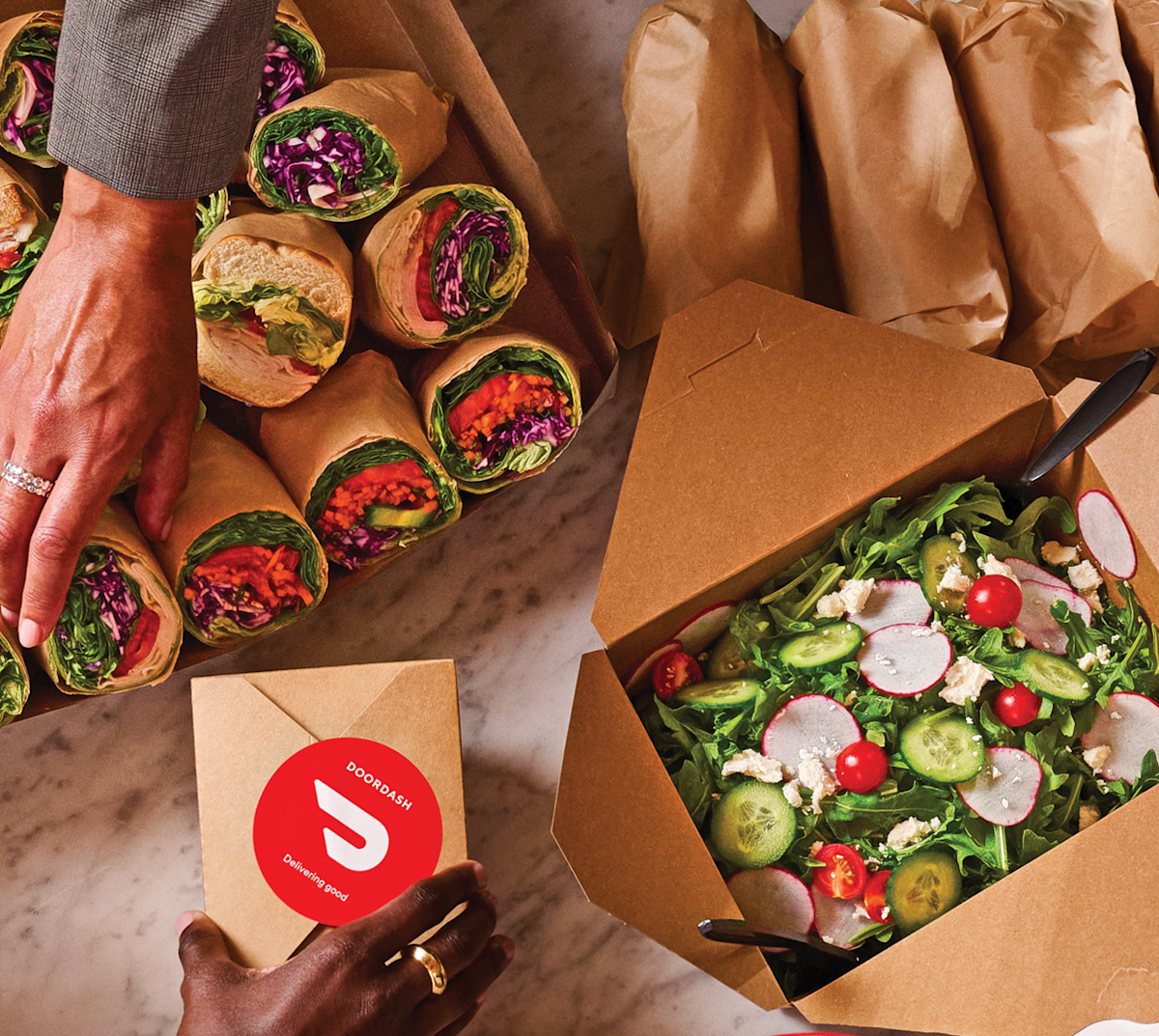Employee wellness has taken center stage in modern workplaces. In today's fast-paced, hybrid work environments, organizations are looking beyond conventional wellness perks and recognizing the powerful connection between food and mental health to support their teams.
From decision fatigue to social isolation, common workplace stressors often revolve around how, when, and what employees eat. According to a 2024 study published in Behavioral Sciences, 63.5% of employees experiencing occupational fatigue — a state of physical or mental exhaustion from prolonged or intense work-related effort — engage in unhealthy eating behaviors like skipping meals or overeating. These behaviors can quickly lead to decreased energy, focus, and overall performance.
Here's why more businesses are bridging the gap with employee meal programs.

Work stressors linked to food
Navigating meetings, balancing deadlines, handling client calls — and making hundreds of decisions in between. Without preventative measures, workplace pressures can accumulate over time, and food-related decisions become just one more mental load to bear for employees. These are the top work stressors that are linked to food.
Decision Fatigue
Not-so-fun fact: 74% of knowledge workers say the number of decisions they make every day increased tenfold over the last three years — a dramatic rise that's contributing to faster and more frequent burnout.
By lunchtime, many employees have already hit a wall. The influx of choices early in the day triggers decision fatigue — the mental exhaustion that sets in after making too many choices — which chips away at focus, judgment, and self-control as the hours wear on.
And this isn't just a theory — the American Medical Association confirms that decision fatigue is cumulative: the more decisions made throughout the day, the more mental resources are drained. Add to that a natural midday dip in blood glucose, as highlighted by Frontiers in Psychology, and it's clear that when and what we eat can directly impact cognitive function.
The result? A perfect storm of poor dietary choices, irritability, and decreased productivity — all of which take a serious toll on employee well-being and workplace performance.
Context-switching & time scarcity
Being able to switch between tasks might seem productive, but in reality, each switch forces the brain to reload information and refocus, burning precious mental energy on setup.
Research shows it takes the average brain about 23 minutes to refocus after an interruption. Add in back-to-back meetings and a packed schedule, and time scarcity becomes a major barrier to healthy choices. When there’s barely a moment to pause, employees often grab whatever is quickest and most convenient, prioritizing speed over nutrition. Instead of planning or ordering a balanced meal, lunch becomes another rushed task squeezed between meetings — or skipped entirely.
Weak office culture
Beyond its biological nature, food is social. When employees miss out on shared meals or casual moments to connect over lunch, stress levels rise and job satisfaction dips. According to Forbes, isolated workers experience 128% more loneliness, 107% more anxiety, and are 78% more likely to face burnout. Even worse, employees experiencing workplace loneliness report higher stress and greater difficulty recovering from job demands — a direct path to burnout.
The takeaway? When meals become solitary or sidelined, workplace connection and employee mental health suffer.

How an employee meal program can reduce work stress
Workplace stress isn’t always triggered by major crises. More often, it's the day-to-day friction that gradually wears employees down.
That's why an employee meal program is one of many creative ways to reduce stress at work. By making it easy for employees to choose nutritious lunches without any prep, employers can help fuel focus, foster stronger connections among teams, and boost overall engagement. In fact, a recent DoorDash for Business report found that 72% of employees say their mental health improves when meal benefits are provided. Here's how:
Reinforces healthy habits
Food has a direct impact on mood, focus, and energy. Yet, during busy workdays, healthy eating is often the first thing to slip.
Providing balanced meals at work delivers on multiple levels: it helps prevent energy crashes and irritability, while supporting steady concentration and emotional balance. Even better, providing a variety of tasty, healthy options makes it easier for employees to recharge, engage, and feel better throughout the day.
Saves time and decision-making effort
By the time lunch rolls around, decision fatigue has likely set in. Instead of adding yet another decision to their day, you can offer employees meal credits to control when, where, and how much they spend on DoorDash, or vouchers for ad hoc occasions. This can save your team time and reduce cognitive load so they can stay focused.
Enhances appreciation and belonging
According to a DoorDash for Business report, an employee meal program makes 85% of employees feel more appreciated and satisfied with their employer.
And the good vibes don't have to stop there — meal benefits are also a great way to show appreciation. Whether it’s celebrating milestones or recognizing a job well done, offering gift cards shows employees that you care and value their well-being.
Encourages social connection
Even a simple policy that encourages employees to take genuine lunch breaks away from their desks can directly address workplace loneliness. Add in the bonus of free, shared meals with your employee meal program, and you have the recipe for meaningful connection — whether your team is remote, hybrid, or in-person.
For hybrid teams, consider connecting for weekly virtual lunches over your preferred video platform. DoorDash expensed meal credits can be scheduled in advance, so employees don't have to spend extra mental energy figuring out meals mid-day — helping everyone stay fueled and included.
For in-person teams, set up recurring group orders where everyone can add their own meal to a shared cart and enjoy lunch together. Both approaches create built-in opportunities for employees to pause, recharge, and build stronger bonds over a shared meal.
Nourish employees, fuel workplace wellness
DoorDash for Business is a solution designed to help bridge the gap between food and mental health in the workplace, without the added complexity.
From expensed meal credits and group orders to gift cards and vouchers, signing up for DoorDash for Business is a powerful way to keep your team happy, healthy, and productive.




